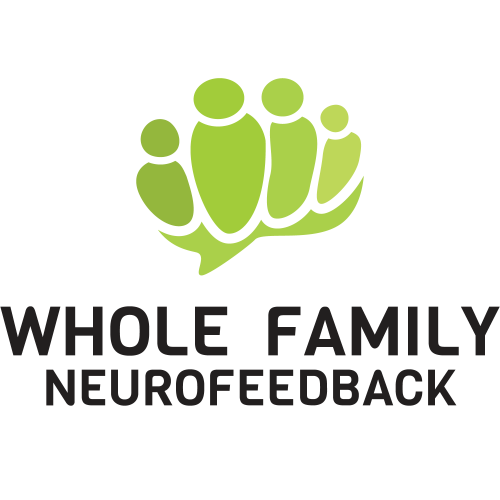How Neurofeedback Can Help Support Neurodiversity
For years neurodiversity was viewed through the lens of deficits. Now, there is a shift where experts are recognizing that neurodiversity simply means there are differences in how our brains work. By understanding these differences, we can recognize the positive aspects of neurodiversity while acknowledging that it brings challenges for some.
Today’s blog discusses ways that neurofeedback can help promote healthy sleep habits, resilience, flexibility, mental acuity, and focus. These are areas many people need support with and we want to give you access to information and resources that will help support you in the ways you need it most.
What is Neurodiversity?
Neurodiversity is the word used to describe the differences in the way people interact with the world. It describes the normal and diverse range of the human genome expression. We see it in the differences in which people learn, behave, think, perceive, act, and feel.
When you take a look at neurodiversity, you see that it simply describes the differences in how we do things. It doesn’t mean these differences are bad or wrong. It’s just….different.
Neurodiversity includes people with:
- Autism Spectrum Disorders (ASD)
- ADHD
- Dyslexia, dyspraxia, and other learning differences
- Tourettes syndrome
- Intellectual disabilities
- Sensory processing disorders
- Genetic disorders
It’s important to note that this list is not all-inclusive.
There are so many ways you can be neurodiverse. When you read about neurodiversity, most information exclusively discusses ADHD and Autism so it’s important to know there are many other ways people can experience neurodiversity. Many people self-identify as neurodiverse because they simply know and feel that they experience the world differently.1
As we learn more about neurodiversity, it’s easy to see that these differences don’t need to be seen as deficits. We can embrace neurodiversity but also understand that it can bring challenges.2
Embracing Neurodiversity
Many experts are moving toward the mindset that these differences are not deficits. There are so many positive aspects of neurodiversity.
Neurodiverse people are:
- Spontaneous
- Fun
- Creative
- Energetic
- Funny
- Passionate
- Analytical
- Honest
- Persistent
- Dedicated
- Loyal
And so much more. The list can go on and on.
People will always have their strengths and things they need to work on. Experiencing neurodiversity might mean you need to get creative to solve a problem. It might mean things take extra time for you. It might mean a little more trial and error to get to your goal.
So many people use neurofeedback to help promote a healthy lifestyle. Many people use it for general wellness, brain optimization, focus and mental acuity, and relaxation – many things that people with neurodiversity need help with as well.
How Neurofeedback Can Help
Everyone experiences struggles and needs help in different areas. Today, we’re going to discuss some of the common areas people struggle with and how NeurOptimal® can help.
Promote healthy sleep habits
We don’t function well if we’re not getting enough sleep. And most people report sleep difficulties. According to research, sleep difficulties are a concern for neurodiverse people. A study showed up to 71% of people with an Autism Spectrum Disorder and up to 50% of people with ADHD report sleep difficulties.3
Getting a good night’s sleep is important to set the tone for the day. It can be the difference between a good day or a bad day.
NeurOptimal® neurofeedback promotes healthy sleep habits by training your brain to work at its most optimal state. It monitors your brain’s electrical patterns while you’re listening to music or watching a movie. When the neurofeedback system detects the brain is about to suddenly shift there is a brief interruption in what you’re listening to. This brief interruption triggers the brain back to the present moment, giving your brain the ability to find optimal functioning.
Over time, it trains your brain to its most optimal state, helping you feel relaxed and calm. People using neurofeedback report improved sleep management and waking up feeling refreshed. In our own personal experience, deep sleep in particular has been increased. Deep sleep is the most restorative sleep stage.
Emotional regulation
Emotional regulation is how you manage your emotional state, how you respond to emotional experiences, and the skills you develop to deal with these emotions.
If you struggle with emotional regulation, neurofeedback optimizes brain performance which has enormous benefits. When your brain finds its most optimal state you can start to feel more relaxed and calm. Many people who experience this report better emotional regulation.
Doug West, director of Parent Driven Services completed a study with kids with Autism Spectrum disorders. The kids completed a minimum of ten NeurOptimal® neurofeedback sessions and he tracked mental and emotional arousal, low frustration tolerance, and overall feeling of wellness.
The results were amazing. Each person reported a greater sense of happiness and calm with an average of 44.4% reduction in dysregulation among the kids.4
Note: We can send you the report. Just email us.
Helps improve mental acuity and focus
If you find yourself struggling to get back on track after an interruption or you struggle with attention and focus, neurofeedback is a great tool to use. The feedback the system provides allows the brain to develop new patterns that optimize the brain’s ability to adapt and change.
Many people report improvements in mental acuity and focus after using neurofeedback. This is beneficial for kids in school or adults who need to focus better at work. Using neurofeedback regularly helps your brain stay in an optimal state which can help you focus better overall.
Promotes mental flexibility
When you have changes to your routine or environment, do you find it difficult to adapt to the situation? If so, neurofeedback may help you with increased flexibility, making it easier for you to navigate new situations and adapt to unexpected changes.
Being able to adapt and change is an important skill and one that most people need help with. As humans, we don’t accept change well. Our brain loves to keep us safe by sticking to routines and things that we’re familiar with.
Learning to have flexible thinking and accepting change can:
- Decrease stress and anxiety
- Increase problem-solving skills
- Help you adapt to changing school or work environments
- Increase communication with other
- Promote better relationships with others
Because your brain finds its most optimal state, people who use neurofeedback report better mental flexibility and resilience.
Emotional resilience
Emotional resilience is the ability to regulate your emotions to quickly recover from difficulty. It’s an important skill that helps us live healthy, productive, fulfilling lives. It’s common for people to continually work on emotional resilience throughout their lives.
NeurOptimal® taps into the brain’s natural instinct towards resilience and flexibility. It brings you back to the present moment which helps your brain respond more effectively, help you relax, and cope with stress. When your brain is working at its optimal state and you feel more relaxed and calm, it’s much easier to build emotional resilience.
Why NeurOptimal®?
Unlike other types of neurofeedback, NeurOptimal® doesn’t require a brain map or medical diagnosis to get started. It’s a brain training system that helps your brain find its optimal state.
NeurOptimal® works with everyone as an individual. No two people are the same and you’ll only receive feedback that you need, optimizing how your brain works for you.
People also love using NeurOptimal® because it’s
- Non-invasive
- Safe
- Natural
- Easy to use
- Convenient, can be done right at home!
- Effortless, all you need to do is listen to music or watch a movie
You’re always well supported working with Whole Family Neurofeedback. We ensure that your sessions are seamless with:
Plug & Play Tech – easy for anyone to use
Dedicated customer service 7 days a week
Videos to help you understand how to use the equipment
Available via text or email
Do you want to learn more about how NeurOptimal® can help you?
Fill out our contact form or call us at 303-222-5118
Resources
- Child Mind Institute
- What Is Neurodiversity? Harvard.
- Sleep Problems and Neurodevelopment Disorders
- West, Douglas, R. Improving Emotional Regulation Using Neuroptimal Training for ASD Youth. Parent Driven Autism Services. 2018.

